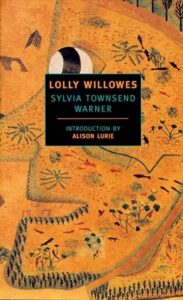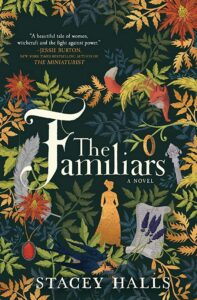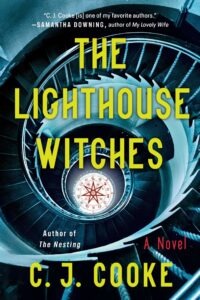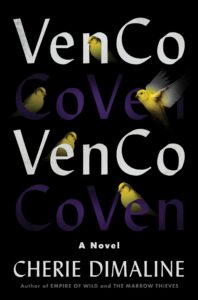Witches—and witch trials—have long been a subject of fascination in literature. Not even Shakespeare was immune. In Macbeth, the Weird Sisters (originally called the Weyward Sisters) set the scene for the bard’s tragedy about fate, evil and malign female influence. Fast forward four hundred years, and witchy novels—across a range of genres—are bigger than ever.
Perhaps we’re so spellbound by witches because we find them difficult to explain. The witch trials of the early modern period are one of the darkest chapters in human history: thousands of people, mainly women, were put to death in continental Europe, Britain and North America. This was a phenomenon that spanned continents and religions: Salem’s Puritan hysteria burns bright in the imagination, but Catholic countries—such as France—executed witches, too.
Given that it was mainly women who were killed, we can’t ignore that misogyny played a role. And you’d be forgiven for thinking that the sort of sexism that led to the witch trials has been left behind in the past. Instead, it seems to have morphed into something different, something insidious. Lurking in our workplaces, governments, courtrooms—even in our homes. As women process our frustration with continued gender inequality—from domestic violence to attacks on reproductive rights—it makes sense that witches and witch trials still resonate today.
After all, a witch is persecuted because she’s feared. And she’s feared because she’s powerful. A threat.
In my novel WEYWARD, I was inspired by the Pendle Witch Trials that took place in Lancaster, England in 1612 and which led to the execution of eight women, namely from two families headed by matriarchs. I was struck by this—that it was powerful women living outside of traditional patriarchal structures who had been targeted. Writing at the time of the pandemic, when news reports highlighted rising rates of domestic violence in lockdown, I wanted to use the past to hold a mirror up to the present—to explore how misogyny continues today. But I also wanted to showcase the power in female resilience and community. I think there’s a magic in reclaiming the label of “witch” from the past, in subverting the idea of malevolent female influence that led to the witch trials.
“Witch lit” is a reminder that misogyny echoes through time. But it can also be a powerful, even joyful, reclamation of female strength and mystery—as the novels listed below demonstrate.

Lolly Willowes by Sylvia Townsend Warner
First published in 1926, at a time when women were dependent upon male guardians for financial security, this moving, funny novel might be the original example of “witch lit.” Fed up of relying on the charity of her male relatives, English spinster Laura “Lolly” Willowes moves to the rural village of Great Mop in search of independence. There, she adopts a kitten named Vinegar, and makes a pact with the devil. Lolly becomes a witch, as she puts it, “to have a life of one’s own, not an existence doled out to you by others.” An ode to female freedom that’s as relevant now as it was a century ago.

The Familiars by Stacey Halls
The memorably named Fleetwood Shuttleworth fights for justice in Halls’ enthralling novel based on the infamous Pendle Witch Trials in 1612 (which also inspired my novel). Young noblewoman Fleetwood is pregnant again after a heart-breaking series of miscarriages. A chance encounter with Alice Gray, a local healer and midwife who promises she can save Fleetwood’s child, leads to an unlikely alliance between the two women. But as hysteria sweeps the land and suspicion falls on Alice, Fleetwood will have to summon all her courage and wit to prove her new friend’s innocence. Halls’ spellbinding tale shines a light on the misogyny of the past—and draws female friendship out of the shadows.

Circe by Madeline Miller
Witch lit blends beautifully with mythology in Miller’s lyrical novel about the infamous sorceress from The Odyssey. Circe, child of a god and a nymph, is lonely and unloved from birth (her parents wanted a son, but concede she might be traded in marriage for “something better”). An encounter with Prometheus sparks her curiosity of mortals, and through her transformation of fisherman into a god (he later leaves her for the nymph Scylla, who Circe turns into a monster for revenge)— she discovers that she is a pharmakis. A witch. The gods punish her for the possession of a “power greater than their own” and she is banished to live alone on an island, Aiaia. There, she hones her craft. By the time Odysseus and his men wash up on her shoes, she is at the height of her powers—but their union will have devastating consequences. Miller imbues the old story of Odysseus’ marooning on Aiaia with new magic, crafting an unforgettable heroine in the process.

The Lighthouse Witches by CJ Cooke
Cooke takes inspiration from the Scottish witch trials in this inventive and unpredictable thriller. The setting—an abandoned lighthouse named “The Longing” on the remote Scottish island Lòn Haven—drips with atmosphere. Not least because The Longing happens to be built over the Witches Hide—a cave where women were held before being tried as witches in 1662. The novel seamlessly interweaves two timelines: in the 1990s, artist Liv arrives on Lòn Haven with her three daughters in tow, having been commissioned to paint a strange mural inside The Longing. Twenty years later, Luna, one of those daughters, barely remembers the vanishing of her family. But a strange discovery forces her to confront the past. Peppered throughout is the much older story of a local boy who sees his mother accused in the island’s witch trials. Gripping and disturbing, The Lighthouse Witches blends themes of motherhood, folklore and superstition into a terrifying tale you won’t forget. Keep the lights on for this one.

Venco by Cherie Dimaline
Lucky St James isn’t exactly living up to her name: she’s stuck in a dead-end temp job and she and her grandmother, Stella, are about to be evicted from their Toronto apartment. But the discovery of a mysterious silver spoon—engraved with the image of a cackling witch and the word “Salem”—opens the door to a world she never imagined. A world where women of all backgrounds are drawn together in a quest to save humanity from destruction by uniting seven magic silver spoons. But they’d better be sure that immortal witchfinder Jay Christos—hellbent on wiping witches from the face of the earth—doesn’t get there first. And they’re running out of time. Packed with humour and wit, Dimaline’s inclusive fantasy is a delight. You’ll want to join this coven.
***


















